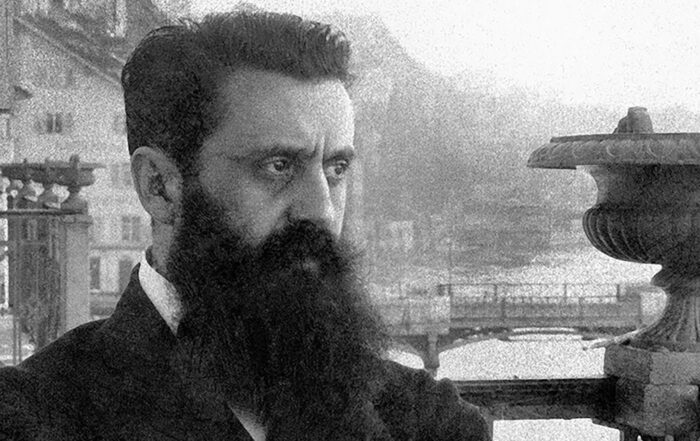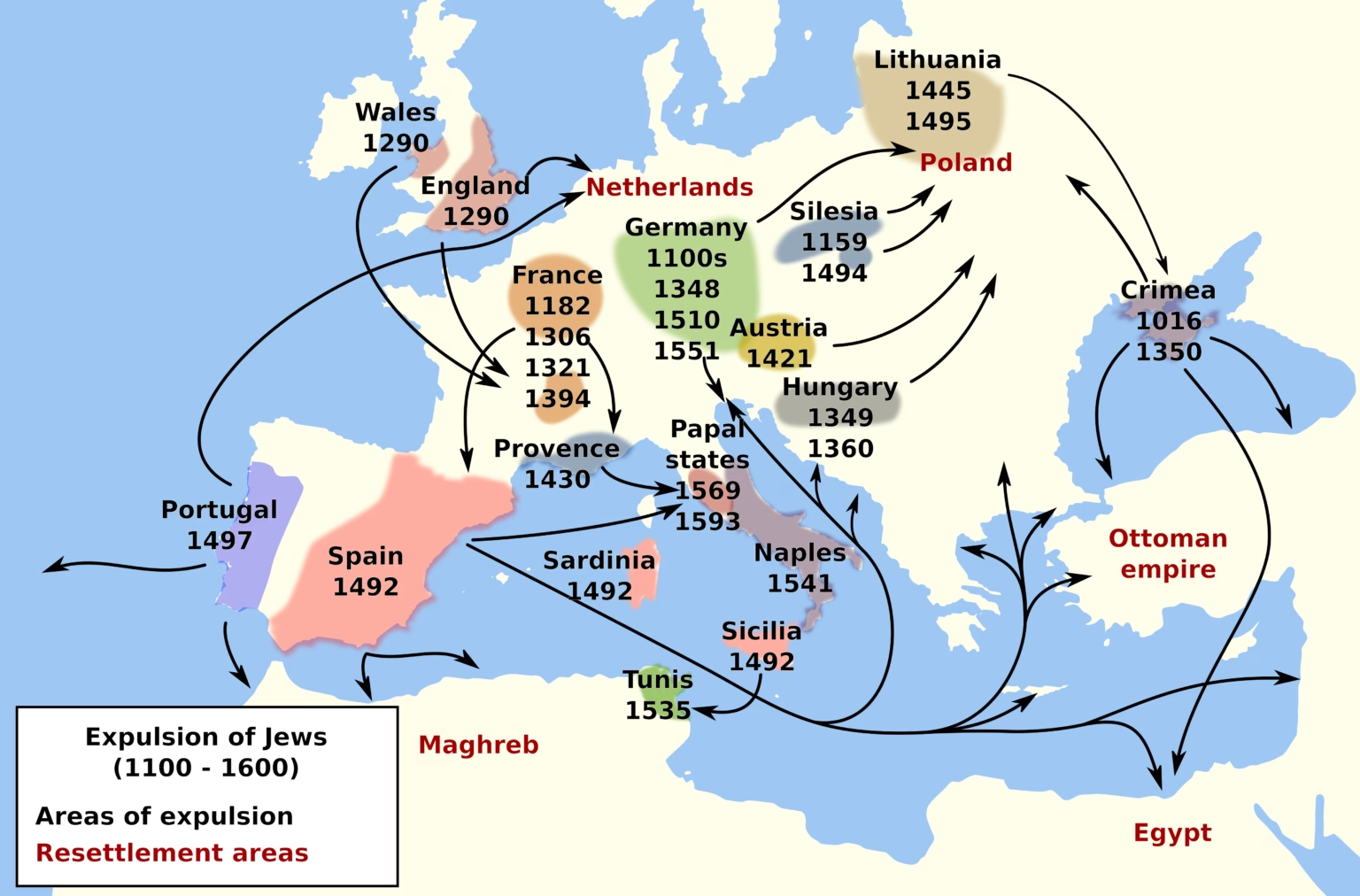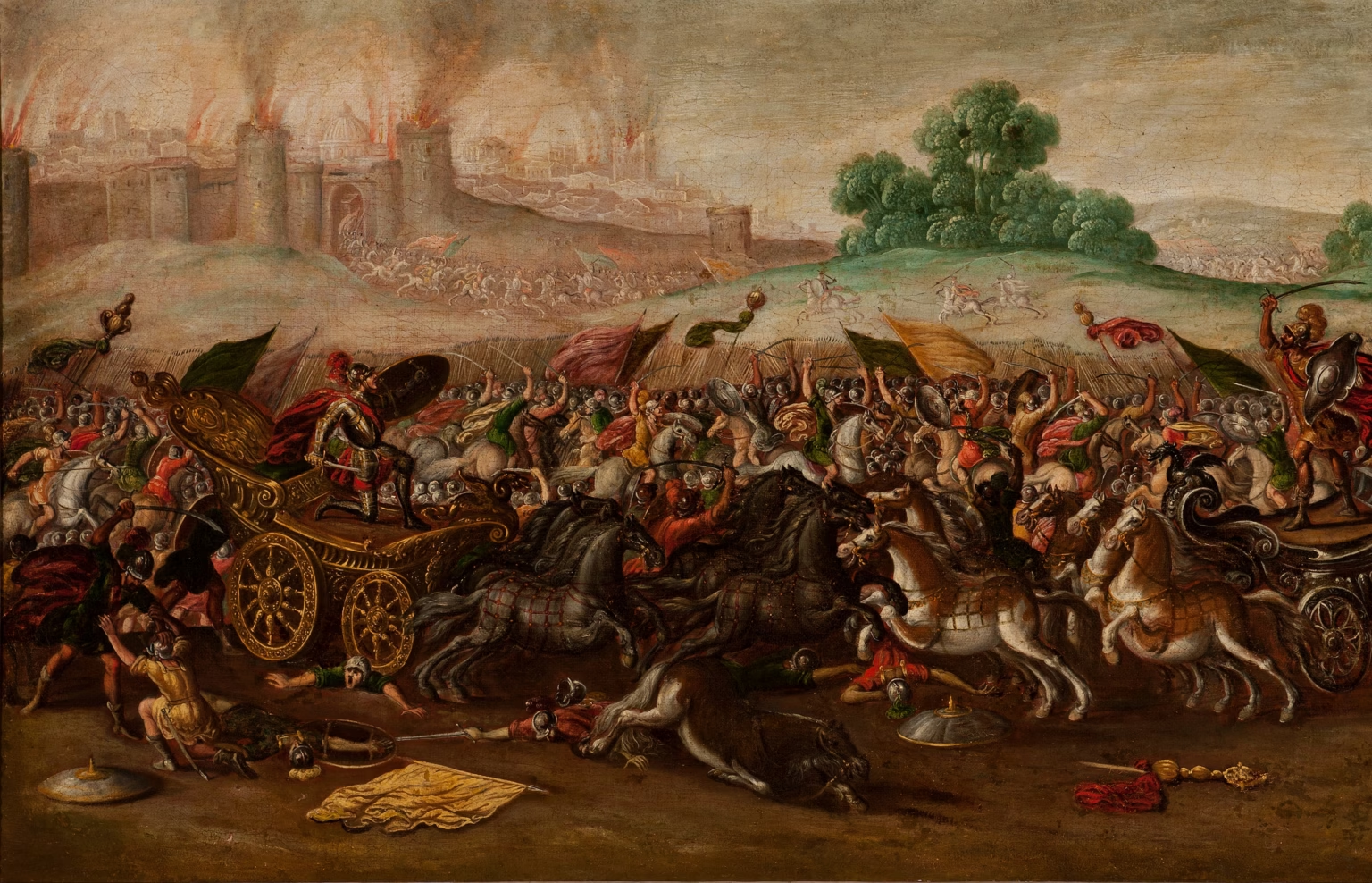Holiday celebrating Theodor Herzl
Herzl Day is an Israeli national holiday celebrated annually on the tenth day of the Hebrew month of Iyar, this year on May 18. The day celebrates the life and vision of Zionist leader Theodor Herzl.
After the first Zionist congress in Basel in 1897, Herzl wrote in his diary: “In Basel I created the Jewish state. In five years maybe, and certainly in fifty, everyone will realize it. If you want it, it is not just a dream.”

When the State of Israel was proclaimed in May 1948, a large photograph of Theodor Herzl hung on the wall behind the protagonists reading the Declaration of Independence. Photo: GPO/Hans Pin
Herzl Day was founded by the Israeli parliament, Knesset, as part of the Herzl Law. According to this law which was passed in June 2004, Herzl Day is to be celebrated once a year, on Iyar 10, Theodor Herzl’s birthday.
On this holiday, a state memorial service is held on Mount Herzl in Jerusalem and in defense training camps and schools. Time is devoted to delving into Theodor Herzl’s efforts and Zionist vision and a seminar in memory of Herzl is held in Jerusalem to discuss Zionist issues. The Knesset also holds a special session to mark Herzl Day. If the Hebrew date, 10 Iyar, falls on the Sabbath, Herzl Day is postponed to Sunday
In early 1896, Herzl published the book “Der Judenstaat” which argued for the founding of a Jewish state as the only solution to the pogroms and persecution that befell the Jews in Europe. In his book he wrote: “The concept that I have developed in this pamphlet is ancient: It is the establishment of the Jewish state…”
Although Herzl’s book came in a sense as a bolt from the blue, it was not published in a vacuum. Already in the 1860s and 1870s, the idea was put forward that there was no other alternative for the European Jews than to found their own state.
Personal awakening
Parallel to the escalation of anti-Semitism in Eastern Europe, a personal awakening had also taken place in our Jewish journalist, which was to be pivotal.
The trigger for Theodor Herzl’s involvement was the Dreyfus Affair in France, a political legal scandal in which the Jewish officer Alfred Dreyfus was sentenced to life-long deportation to Devil’s Island in 1894. The crime was high treason.
During the process, which was covered by the journalist Herzl for the newspaper Neue Freie Presse in Vienna, French anti-Semites demanded that all Jewish officers be forced out of the army and later that all Jews be expelled from France.
The Dreyfus Affair attracted a great deal of international attention, although the Jewish officer was later exonerated and the charge against him revealed as a judicial murder. For Theodor Herzl, the events in Paris were an eye-opener.
Anticipated European Antisemitism
No one like Herzl foresaw in the late 1890s the incorrigibility of European anti-Semitism. And no one during his time highlighted so clearly the need for the state of Israel to be established.
The Holocaust in the middle of the stronghold of European culture and the establishment of the State of Israel a few decades later proved him right.
The basic idea in Theodor Herzl’s book was to be able to establish the Jewish state with the help of one or more great powers. On this point, too, the book’s author was prescient. 20 years later, the Ottoman Empire was defeated by the British Empire, which conquered Jerusalem and forthwith formulated the Balfour Declaration.
At the First Zionist Congress in Basel in 1897, of which Herzl was one of the initiators, it was resolved that the goal was to create a homeland for the Jewish people in Eretz Israel. After the congress, Herzl wrote in his diary: “In Basel I created the Jewish state. In five years maybe, and certainly in fifty, everyone will realize that. If you want it, it is not just a dream.”
50 years and two world wars later, the UN recognized Israel as a state and the following year the State of Israel was proclaimed, with a large photograph of Theodor Herzl on the wall behind the protagonists sitting on the podium reading the Declaration of Independence.


